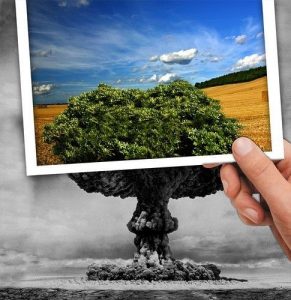Assignment 1:5
There was a time once when all humans could not verbally speak. Communication was easily transferable through mental means. Words did not exist, languages did not exist – instead feelings, emotions and ideas were the tools for the society. The concept of privacy and lying did not exist for there was never any use for any such means. The times were simple and debates and misunderstandings were a rarity. Empathy was of abundance – it was easy to see entire perspectives of another person with entire feelings being delivered. Society flourished due to very few miscommunication and it was very effortless for each member to be on the same page.
Away from humanity, in the far northern regions there was a gathering of witches. These witches were verbal speakers and they never interacted with the humans, always keeping a safe distance. Two distinct societies living in separate and functional peace. All the witches had come together for a conference, in a cave but the conference soon turned into a contest. Each witch trying to outdo the other by casting spells and brewing potions. To anyone watching it must have been fun to observe such a display.
There was one witch who had a different idea in mind and to show herself as a superior with the utmost of powers she stepped outside the cave and whispered to the south. The whisper resonated into the four corners of the world. A whisper with such strong vibration that the mental transference among humans was disrupted. The witch had forced humans to become verbal speakers. The other witches were all in disbelief. They had no idea what would result and no idea what would become of these humans. The contest had gone too far but alas there was no taking the whisper back.
For the humans, at first there was confusion. Then there was concern. Finally there was adjustment. Various societies in the different regions were forced to take on verbal speech. Languages were created and slowly humans began to interact verbally. No longer did they have the ability to easily express themselves. Frustration was now the new norm.
When various languages crossed paths the tensions arose further. With the abundance of miscommunication societies soon attacked and took over other societies. Soon each human tired of fully trying to deliver what they meant and they were forced to tell stories of themselves in order to make themselves an individual entity in the new world. They built themselves out of those stories, and they picked and chose how they wanted their stories to behave. No longer did anyone have full exposure to everyone else. An individual could be who and what they wanted to be and this led to the creation of lies, deceits, and evil. Words and stories are pale shadows of forgotten names. Words lit fires in the minds of men, and they forced tears to fall from the hardest hearts. Wars soon broke out, every human had their own personal agenda, and never again was their full expression of minds. Each human had to be careful of the stories they told, and more importantly the had to be wary of the stories they listened to.
Writing this story and orally retelling it proved to be a tougher task than I imagined. I could not fully translate what I wanted from this story. Not everyone would be able to read between the lines in the exact way I wanted them too and I believe this thought has always been with me, hence the theme for the story. One of the most important points I thought Thomas King had made in his initial chapter was to due with the tone of voice when telling stories. I tried to deliver this stories in multiple tones – from somber to overly enthusiastic and it resulted in varying degrees of reactions to it. I find it so fascinating how a simple characteristic such as tone can have an impact on the ability of believing and importance of a story. King’s comparison to the genesis and the story of Charm showed the societal hierarchy for the two. I also had difficulty captivating my audience (or maybe my friends and family just had poor attention spans) and I have an appreciation for the skills and true art of story telling.
Works Cited
King, Thomas. The Truth About Stories: A Native Narrative. Toronto: House of Anansi, 2003. Print.
Walsh, John. The Art of Storytelling: Easy Steps to Presenting an Unforgettable Story. Chicago: Moody, 2003. Print.



